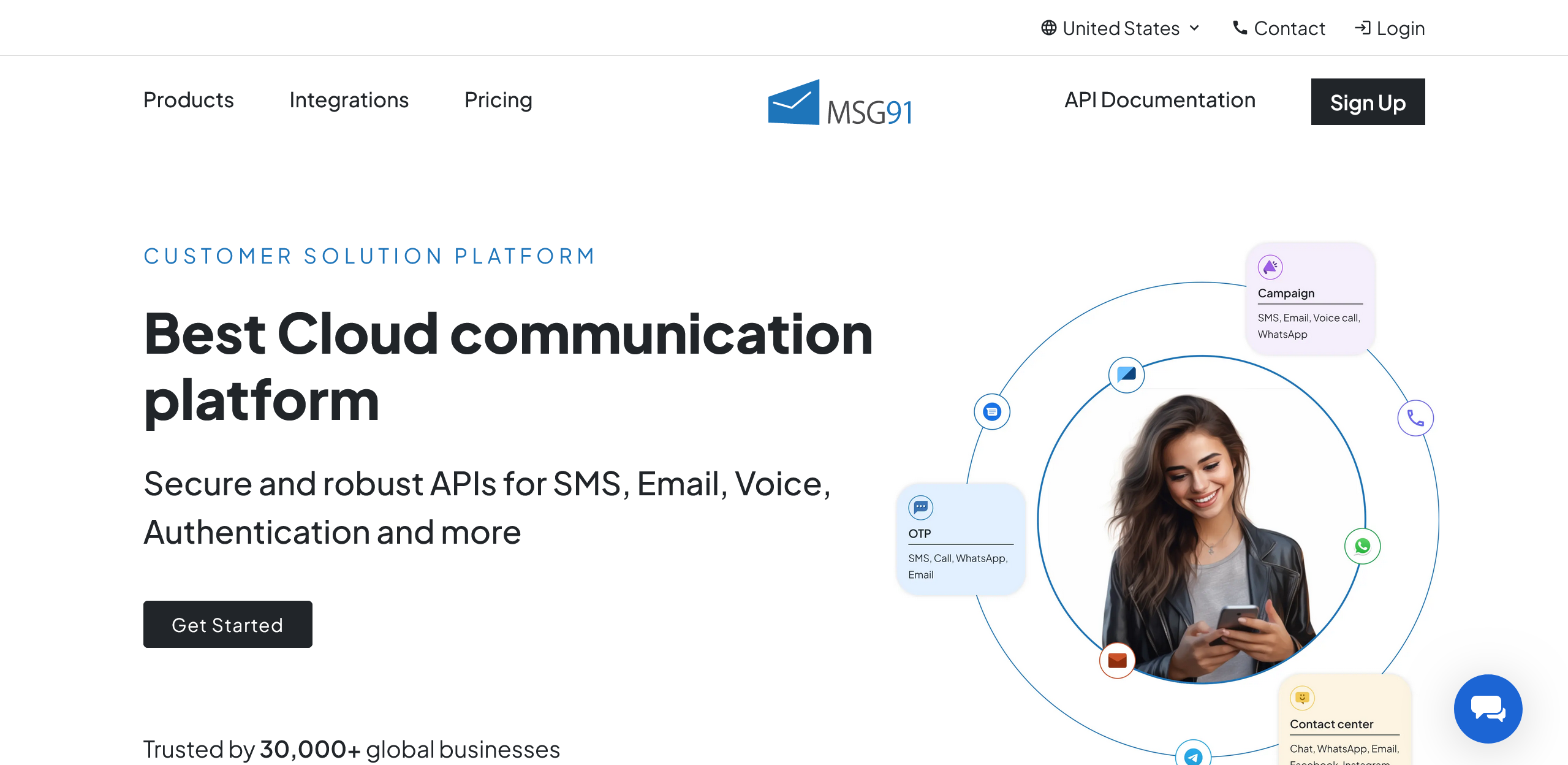In today’s digital age, customer communication is more crucial than ever. Businesses need to be readily available on platforms their customers frequent, and with over 2 billion monthly active users in the US alone, WhatsApp reigns supreme. But what if you could leverage the power of WhatsApp for your business beyond just a basic chat app? Enter WhatsApp APIs – a game-changer for businesses seeking to elevate their customer communication strategy.
This guide delves into the world of WhatsApp APIs, explaining what they are, how they differ from the regular WhatsApp app, and the multitude of benefits they offer businesses of all sizes. Whether you’re a bustling e-commerce store, a local restaurant, or a solopreneur, WhatsApp APIs can unlock a new level of engagement and efficiency in your customer interactions.
Understanding WhatsApp Business and Its Limitations
Let’s begin by clarifying the difference between the standard WhatsApp app and the WhatsApp Business app. While both allow you to send and receive messages, the Business app offers additional features specifically designed for businesses. These include creating a business profile, setting automated greeting messages, and managing broadcast lists for mass communication.
However, the WhatsApp Business app has limitations, especially for businesses that require large-scale communication or advanced automation features. The biggest drawback is the one-on-one messaging limitation. You can only initiate conversations with customers who have already messaged you first, hindering proactive outreach. Additionally, the Business app lacks robust analytics and reporting capabilities, making it difficult to measure the success of your communication efforts.
Enter the World of WhatsApp APIs
This is where WhatsApp APIs come to the rescue. Imagine having a powerful tool that bridges the gap between your existing business software and the familiar interface of WhatsApp. That’s precisely what WhatsApp APIs do. They act as intermediaries, allowing businesses to programmatically send and receive messages through WhatsApp at scale.
How WhatsApp APIs Work
Here’s a simplified breakdown of the process:
- Business Integration: You integrate your existing CRM, helpdesk, or any other business software with a WhatsApp Business Solution Provider (BSP) like MSG9.
- Message Trigger: An event within your software triggers a message to be sent via WhatsApp. This could be anything from an order confirmation to a shipping notification or a marketing campaign blast.
- API Communication: The BSP acts as a bridge, securely transmitting the message through the WhatsApp API to your customer’s phone.
- Two-Way Communication: Customers can reply directly on WhatsApp, and the responses are routed back to your business software for further action or analysis.
Benefits of Using WhatsApp APIs for Businesses
The advantages of incorporating WhatsApp APIs into your communication strategy are numerous:
- Enhanced Customer Engagement: WhatsApp boasts an incredibly high open rate compared to traditional email marketing. With APIs, you can send targeted messages, promotions, and updates directly to your customer’s preferred platform, fostering deeper engagement.
- Improved Customer Service: Respond to inquiries and resolve issues efficiently through real-time conversations. Leverage chatbots for automated responses to frequently asked questions, freeing up human agents to handle more complex issues.
- Increased Sales and Conversions: Utilize WhatsApp APIs for targeted marketing campaigns, product recommendations, and personalized offers. The ability to share rich media like images and videos within messages can significantly enhance conversion rates.
- Streamlined Communication: Automate repetitive tasks like order confirmations, appointment reminders, and shipping notifications, freeing up your team to focus on other crucial tasks.
- Global Reach: Connect with customers worldwide through a platform they’re already familiar with. This is particularly beneficial for businesses with international markets.
- Improved Brand Image: Offering a convenient and familiar communication channel showcases a customer-centric approach, ultimately strengthening your brand image.
The Different Types of WhatsApp APIs
There are two primary types of WhatsApp APIs to consider:
- Session APIs: Ideal for real-time conversations with customers. These APIs allow for a 24-hour window to interact with a customer who has initiated a chat, facilitating a seamless back-and-forth communication flow.
- Cloud APIs: Provide more flexibility for sending bulk messages like marketing campaigns or appointment reminders. However, there are limitations on initiating conversations with customers who haven’t messaged you first.
Exploring Use Cases for WhatsApp APIs
Let’s delve deeper into how businesses across various industries can leverage WhatsApp APIs to enhance their customer communication:
- E-commerce: Send order confirmations, shipping updates, and track order inquiries.
- Retail: Offer personalized product recommendations, run targeted promotions, and provide post-purchase support.
- Travel & Hospitality: Send booking confirmations, flight updates, and personalized recommendations for local attractions.
Customer Service:
- Provide real-time support through chatbots and human agents, addressing customer inquiries and resolving issues efficiently.
- Offer appointment scheduling and reminders for services like car maintenance or salon visits.
Healthcare:
- Send appointment reminders, lab results, and medication information securely.
- Enable patients to connect with healthcare providers for non-emergency concerns.
Banking & Finance:
- Provide account updates, transaction notifications, and secure two-factor authentication.
- Offer customer support for account-related inquiries and troubleshooting.
The Power of Data and Analytics
Many WhatsApp Business Solution Providers (BSPs) offer robust analytics dashboards that provide valuable insights into your customer communication efforts. You can track metrics like message delivery rates, open rates, and customer response times. This data allows you to measure the success of your campaigns, identify areas for improvement, and personalize your communication strategy for better engagement.
Getting Started with WhatsApp APIs
Integrating WhatsApp APIs into your business communication requires collaboration with a reputable BSP like MSG91. Here’s a simplified roadmap:
- Choose a BSP: Research different providers, considering factors like pricing plans, features offered, and customer support.
- Develop or Integrate: Depending on your technical expertise, you might need to develop custom software or integrate with existing solutions offered by your BSP.
- Verify Your Business: The WhatsApp Business API requires verification of your business identity.
- Start Communicating: Once approved, you can begin sending and receiving messages through the WhatsApp API.
Conclusion
In today’s competitive landscape, businesses that prioritize exceptional customer communication stand out. WhatsApp APIs offer a powerful and convenient way to connect with your customers on their preferred platforms. By leveraging the benefits of real-time interactions, enhanced engagement, and automated workflows, you can streamline your communication, improve customer satisfaction, and ultimately drive business growth.
Ready to take the leap? Explore the possibilities of WhatsApp APIs for your business and unlock a new era of customer-centric communication.













